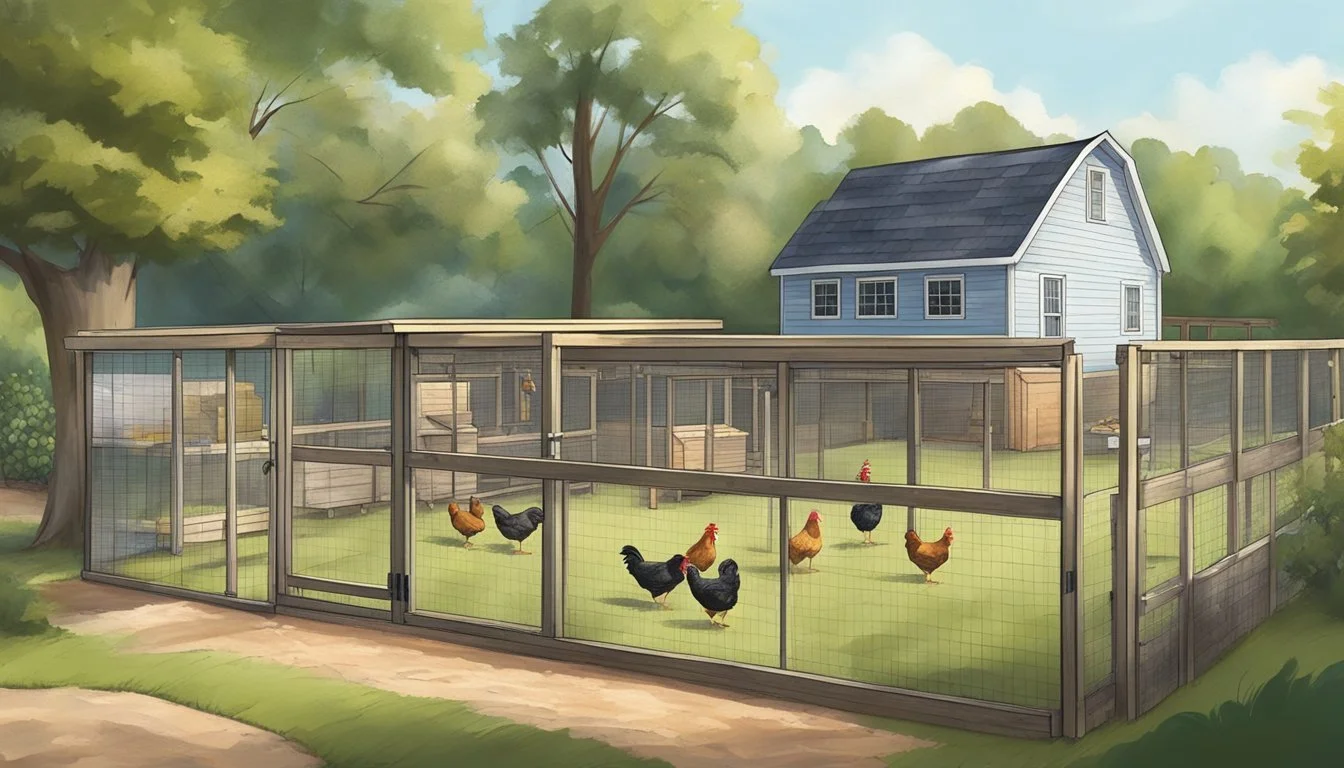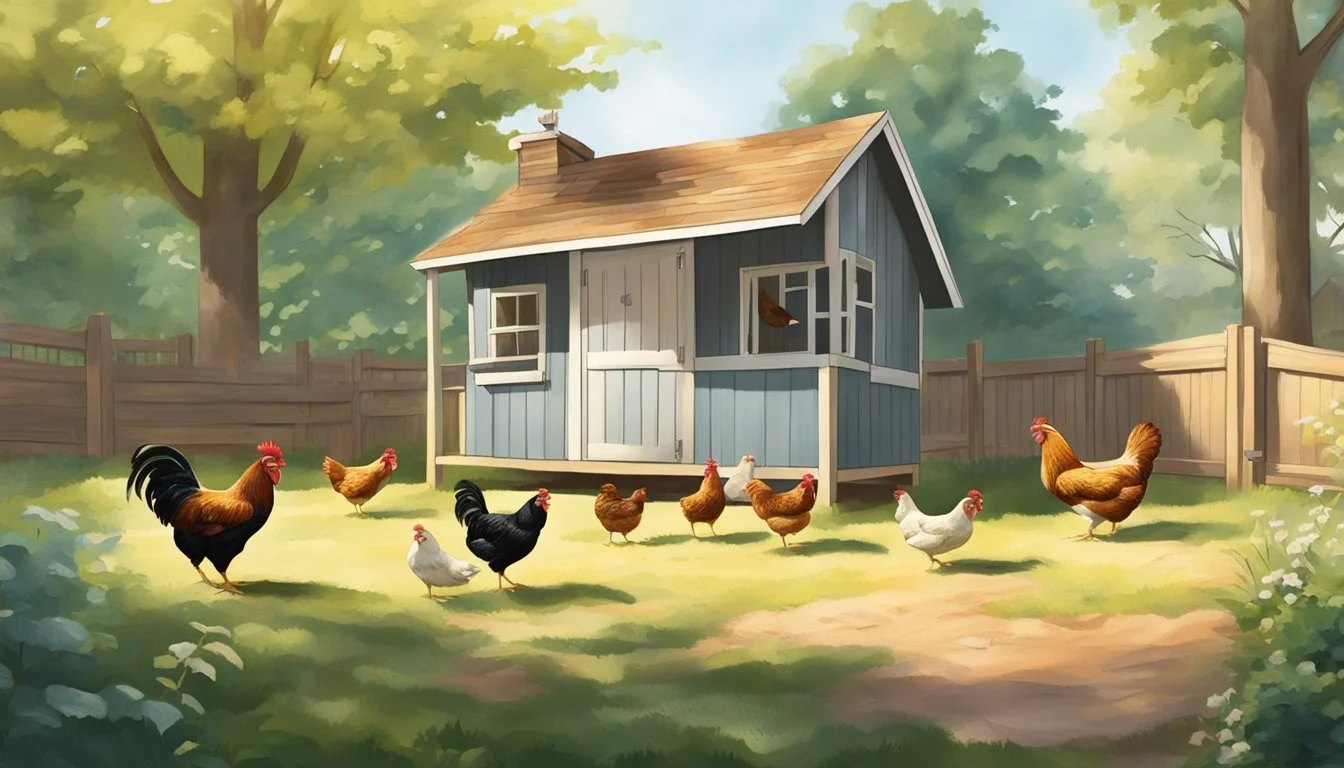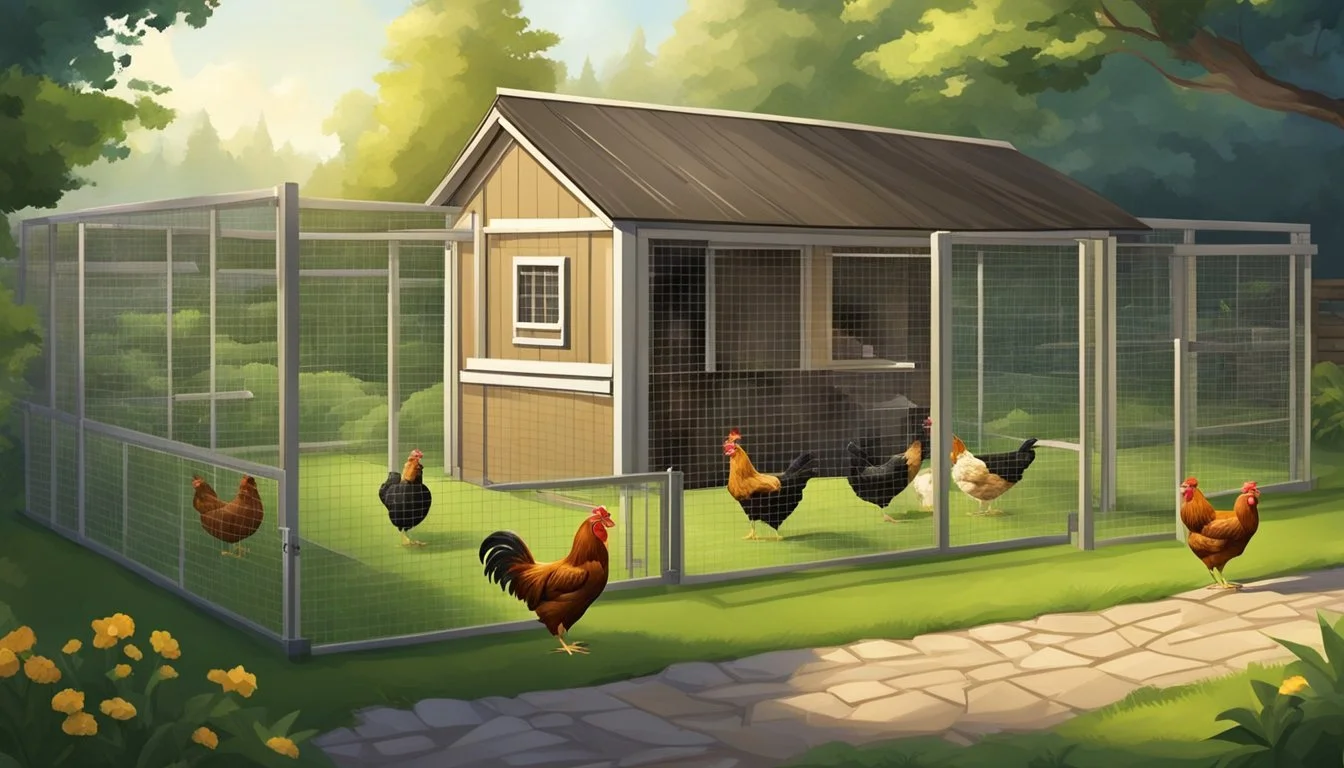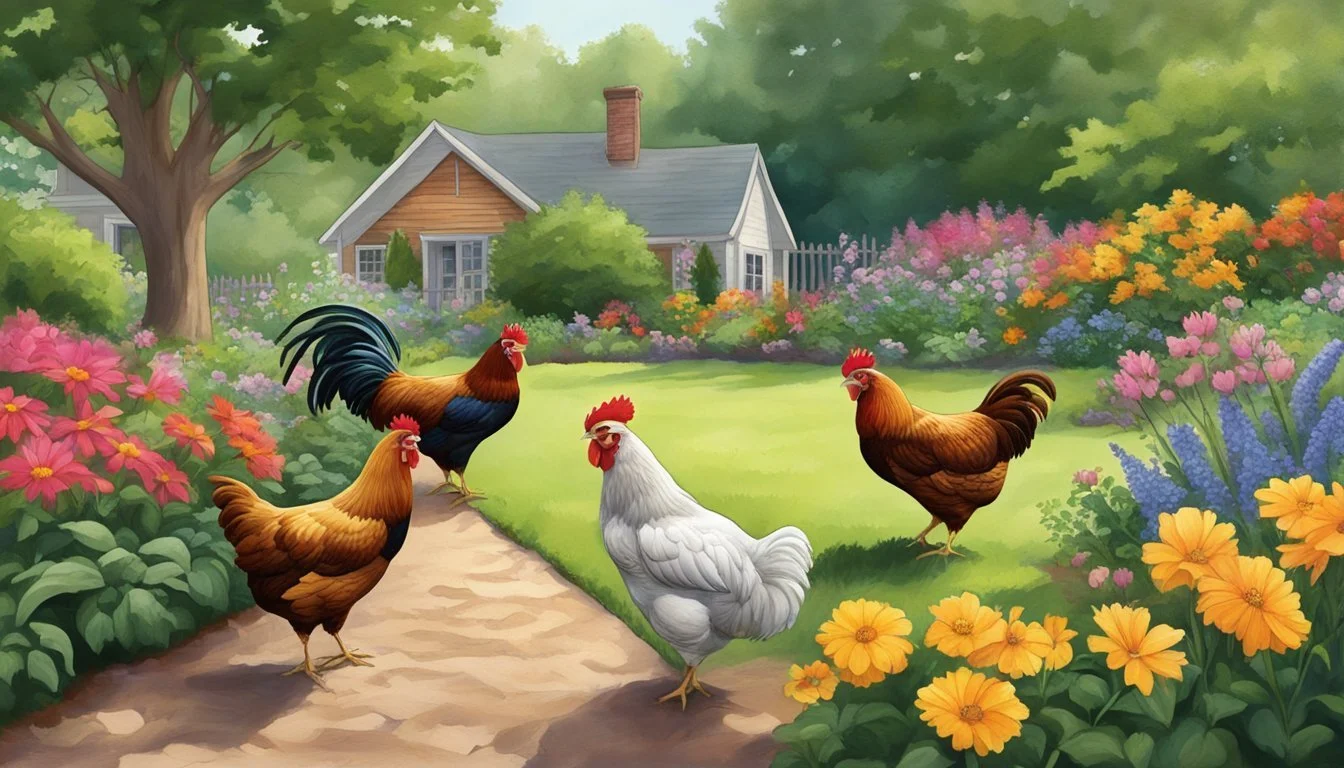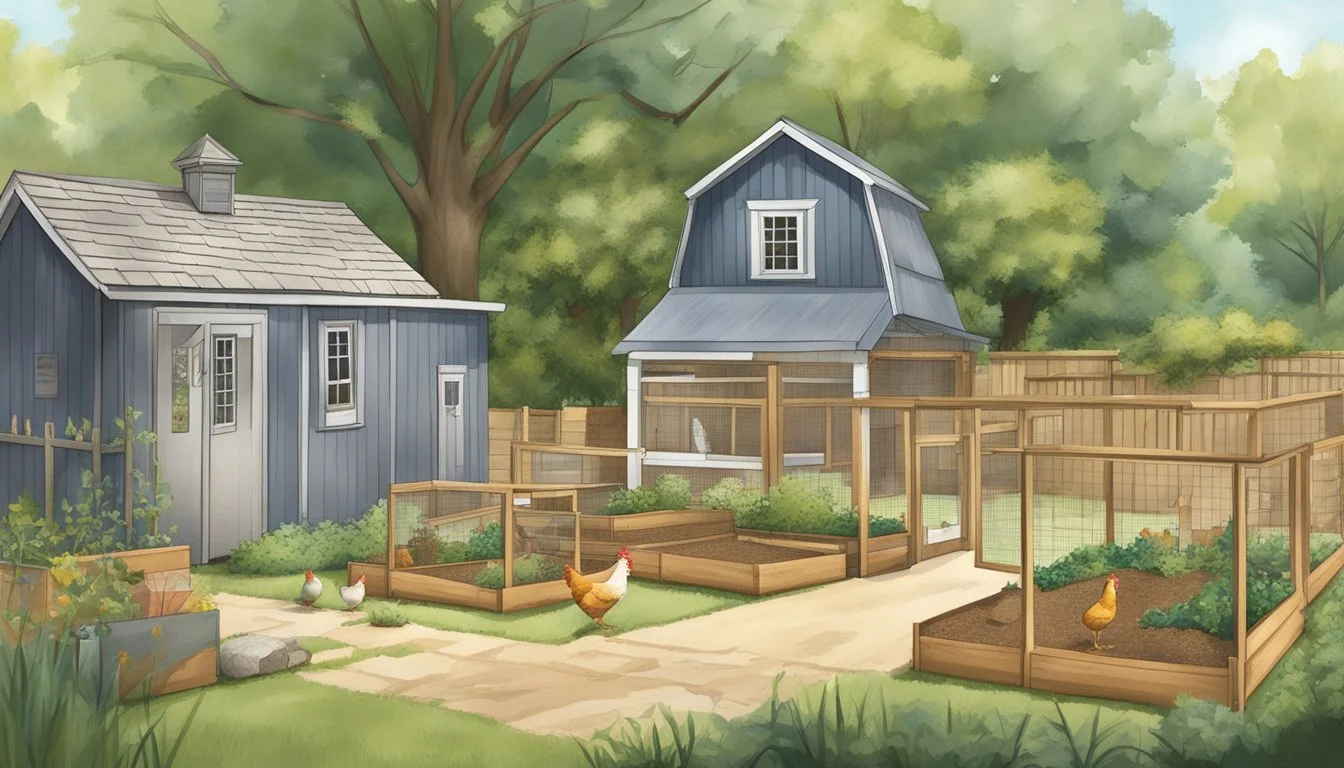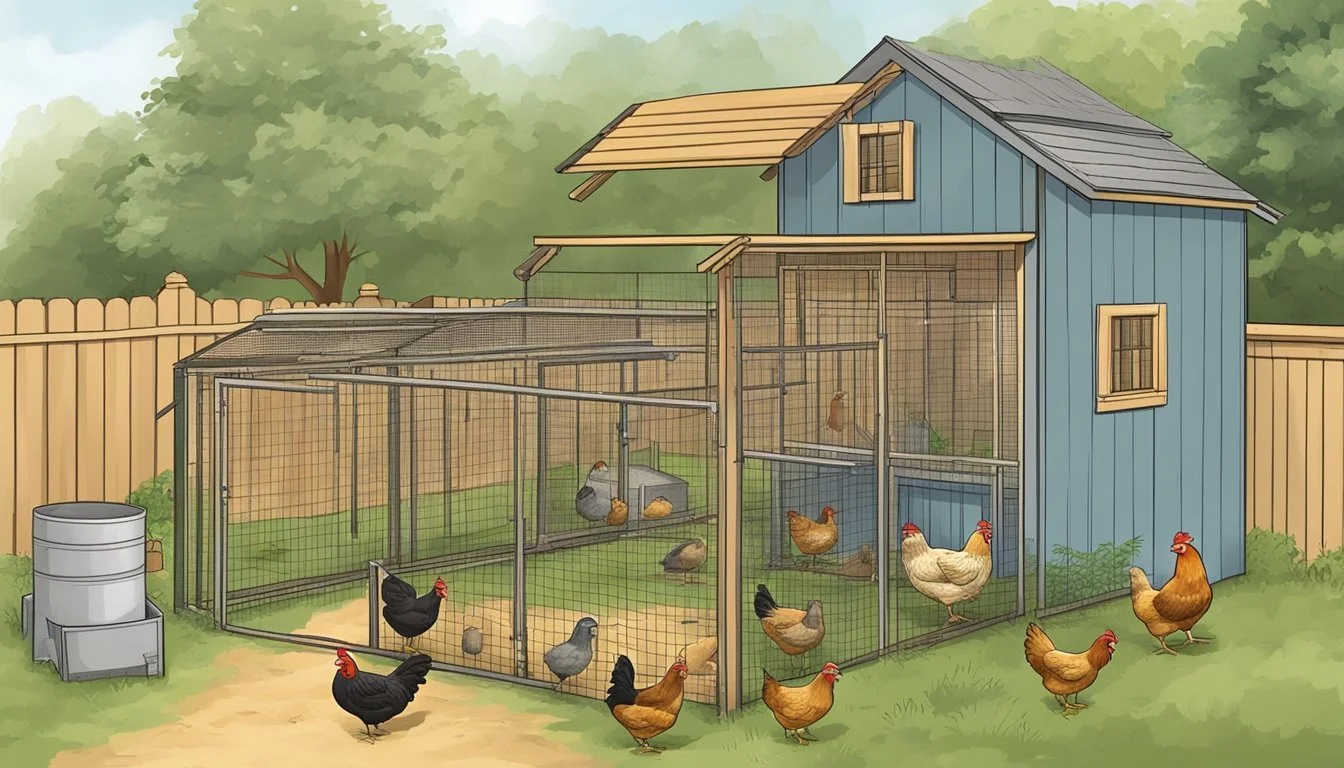Keeping Backyard Chickens in Durham, NC
Essential Tips for Urban Poultry Farming
Backyard chickens (how long does chicken last?) have become a popular choice for residents of Durham, NC, offering a way to enjoy fresh eggs and contribute to a sustainable lifestyle. As urban and suburban homesteading gains traction, keeping chickens is a step many are choosing to integrate into their daily lives. In Durham, the rules are set to encourage small-scale, personal poultry farming, allowing individuals to maintain a flock that harmonizes with city living without disturbing the neighborhood peace.
Durham's regulations permit the keeping of up to 10 female chickens per lot, positioning itself as a community that understands and respects the value of urban agriculture. Acknowledging the essential role that chickens play in a self-sufficient garden ecosystem, the city facilitates this by prohibiting roosters, addressing potential noise concerns. These animals not only provide a steady supply of eggs but also contribute to garden health through pest control and the production of rich fertilizer.
As the trend for local and homegrown food continues to rise, Durham’s stance on backyard chickens aligns with a broader movement towards sustainability. The city's guidelines ensure that while residents can enjoy the benefits of fresh eggs and organic fertilizer for their gardens, commercial activities related to backyard chickens remain limited. This fosters an environment where personal cultivation is valued over commercial gain, preserving the hobbyist nature of backyard poultry keeping in Durham.
Understanding Local Regulations
When raising backyard chickens in Durham, NC, residents must comply with specific local ordinances. These regulations are established to maintain public health and neighborhood harmony.
Durham's Chicken Ordinance
The City of Durham's chicken ordinance allows residents to keep up to 10 female chickens per lot, regardless of the number of dwelling units. Importantly, the selling of eggs, chicks, adult chickens, or any chicken products including manure is prohibited. Similarly, produce fertilized with chicken manure from permitted chickens cannot be sold. Roosters are not permitted within the city limits due to noise concerns.
Permitting Process and Requirements
Individuals looking to keep chickens must adhere to a permit process that enforces the animal ordinances of Durham. Applicants need to provide detailed coop designs and must ensure the coop is made of solid material with a roof and a locked door to prevent predator access and maintain the chickens securely on their property.
Property Line and Coop Placement
In adhering to Durham’s chicken ordinance, coops must be placed at least 15 feet away from property lines. This regulation safeguards against potential nuisances to neighbors and helps ensure proper sanitary conditions. Coop placement and property line adherence are crucial components of the permitting process.
Choosing the Right Chicken Breeds
Selecting suitable chicken breeds for a backyard flock in Durham, NC, involves balancing egg production capabilities with temperament. Local ordinances and climate should also be considered.
Popular Breeds for Backyard Flock
Barred Rocks: This breed is known for its hardiness and adaptability, making it a good choice for the varying North Carolina climate. They are also recognized for their consistent egg-laying.
Rhode Island Reds: These hens are celebrated for their prolific egg production and overall toughness, which is ideal for beginners.
Egg Production and Temperament
Egg Production: Rhode Island Reds are excellent layers, often producing 5-6 eggs per week. Barred Rocks are not far behind, with a strong laying ability of roughly 4-5 eggs weekly.
Temperament: Barred Rocks tend to be docile and friendly, fitting well into a mixed flock. Rhode Island Reds are noted for their easy-going nature, though they can be more assertive than the Barred Rocks.
Designing Your Chicken Coop
Designing a chicken coop requires careful planning to ensure the health and safety of the chickens. Adequate space, security, and comfort are paramount for a thriving backyard flock in Durham, NC.
Coop Size and Space Requirements
Chicken coops in Durham need to provide a minimum of 3 to 4 square feet of space per chicken inside the coop to ensure they have enough room to move, feed, and rest without stress. Additionally, an outside run should offer 10 square feet per chicken to allow for natural behaviours like foraging and dust bathing.
Security from Predators
Protection against predators is crucial for backyard chickens. A coop must be designed with sturdy materials to resist incursions by common predators such as raccoons, foxes, and even neighborhood dogs and cats. Mesh wire should be fine enough to prevent snakes and rodents from entering. All windows and vents should have secure latches, and the coop should be elevated off the ground to deter digging predators.
Nesting Boxes and Roosting Areas
One nesting box for every three hens is recommended, providing them with a private and secure area for egg-laying. Nesting boxes should be positioned lower than roosts to discourage roosting inside them, which helps keep the nests clean. Roosting bars should be provided for nighttime perch, with a rule of thumb being at least 8 to 10 inches of roosting space per chicken. Roosts should be designed for easy cleaning to maintain coop hygiene.
Feeding and Caring for Your Chickens
Providing a balanced diet and maintaining an optimal level of health are crucial for the well-being of backyard chickens in Durham, NC.
Diet and Nutrition
Chickens require a diet rich in nutrients to sustain their energy levels and egg production. Their diet should consist of:
Layer feed: It's the main component of a chicken's diet, providing a balance of protein, carbohydrates, vitamins, and minerals.
Fresh food: Vegetable peels, fruit scraps, and leafy greens are excellent sources of nutrients.
Bugs and grubs: These natural forageables offer essential protein.
Fresh water: Provide clean, fresh water daily to keep the chickens hydrated.
Feeding kitchen waste should be done cautiously, as not all kitchen waste is suitable for chickens. Foods like onions, chocolate, and raw potato peels can be harmful.
Maintaining Health and Wellness
To ensure the health and wellness of chickens:
Monitor Health: Regularly check for signs of illness or distress.
Veterinarian Care: Establish a relationship with a local veterinarian who can treat chickens.
Clean Shelter: Maintain a clean coop to prevent disease.
Predator Protection: Secure the coop from predators to protect the birds.
Healthy birds will display vibrant feathers, clear eyes, and active behavior, indicating their nutritional needs are met and their living environment is suitable. Regular care and observation help in early detection of potential health issues.
Protecting Chickens from Pests and Diseases
Maintaining the health of backyard chickens in Durham, NC, necessitates diligent pest and disease management practices. Garden chickens are susceptible to various parasites and ailments that can be mitigated with proper care.
Pest Management Strategies
Pest management is crucial for keeping chickens healthy and productive. Insects and rodents not only spread disease but also damage housing and feed supplies. A two-pronged approach involving sanitation and physical barriers is effective:
Sanitation: Regular cleaning of the coop and run area is essential. It helps minimize the risk of pests and diseases. All waste and litter should be disposed of promptly and the living spaces kept dry to deter pests.
Physical Barriers: Sturdy coop construction with secure mesh wiring can prevent rodents and other predators from gaining access. The use of diatomaceous earth (DE) in the coop can help eliminate insects without the use of harmful chemicals.
Common Chicken Parasites and Ailments
Chickens in Durham, NC, commonly face threats from parasites like mites, lice, and internal worms. Recognizing these threats early and taking pre-emptive measures can save a flock from discomfort and illness:
Mites and Lice: These external parasites can be controlled by thoroughly cleaning the coop and dusting the chickens’ environment with DE. Replace bedding frequently and check the birds regularly for signs of infestation.
Internal Worms: Chickens can be dewormed with medication, but only as per the recommendation of a veterinarian. Using vaccinated birds and keeping feeders elevated off the ground can help prevent many internal parasites.
Implementing these strategies will help protect backyard chickens in Durham, NC from common pests and diseases, supporting their well-being and productivity.
Managing Egg Production
For Durham, NC residents aiming to sustain high-quality egg production from their backyard chickens, understanding two key aspects is crucial: optimizing laying conditions and handling fresh eggs with care.
Optimizing Laying Conditions
Light: Chickens require about 14-16 hours of light daily to maintain consistent egg laying. During shorter days in fall and winter, egg production naturally drops. To counter this, one can introduce artificial lighting to extend the light exposure for the hens. However, it's important to ensure this is done gradually and not exceeding 16 hours to avoid over-stressing the birds.
Nesting Boxes:
Cleanliness: Keep nesting boxes clean to encourage laying and prevent contamination of eggs.
Privacy: Hens prefer privacy while laying, so nesting boxes should be placed in quiet, less trafficked areas.
Space: Generally, provide at least one nesting box for every four to five hens.
Diet:
Calcium: For strong eggshells, hens need a diet with sufficient calcium.
Balanced Feed: A high-quality poultry feed is crucial for overall health and consistent egg laying.
Flock Management:
If one intends to breed chickens, ensuring a proper ratio of hens to roosters is important; typically 10 hens per rooster.
To prevent the flock from laying fertilized eggs, one can keep the flock rooster-free.
Handling and Using Fresh Eggs
Collection:
Frequency: Collect eggs at least once a day to minimize breakage and the risk of eggs becoming dirty or attracting predators.
Cleaning: If eggs are soiled, gently clean them with fine sandpaper, a brush, or a cloth with warm water.
Storage:
Refrigeration: Store eggs in a refrigerator to significantly extend their shelf life and maintain quality.
Pointy End Down: Place eggs pointy end down to keep the yolk centered and extend freshness.
Use:
Freshness Test: To gauge an egg's freshness, submerge it in water. Fresh eggs will sink and lie flat on their sides, while older eggs may stand upright or float.
Cracking: Always crack eggs into a separate bowl to check for quality before adding to a recipe.
Enhancing Garden with Chicken Contributions
Backyard chickens in Durham, NC, can provide substantial benefits to gardens by producing organic fertilizer and aiding in pest control. These contributions help create a more sustainable and fruitful garden environment.
Using Manure as Organic Fertilizer
Chicken manure is rich in nutrients and an excellent addition to garden soil. When used correctly, it can enhance soil fertility and promote plant growth. For safe application, one should compost the manure before integrating it into the garden. Composting chicken manure not only reduces pathogens but also lessens the intensity of nitrogen that can be too harsh for plants in its raw form. To compost chicken manure:
Collect manure and bedding material.
Place in a compost bin, allowing it to decompose.
Turn the pile regularly to aerate and speed up the composting process.
After the composting process, which can take around six months, the material is ready to be used as an organic fertilizer for the garden.
Chickens for Pest Control and Composting
Chickens can naturally reduce garden pests by eating various insects and larvae. These garden chickens act as biological pest control agents, eliminating the need for chemical alternatives. When allowed to forage in the garden:
They consume common pests such as grubs, beetles, and aphids.
Their foraging behavior can aerate the soil.
Furthermore, chickens contribute to the composting process. They scratch and peck through compost piles, naturally turning and aerating the compost. This behavior can accelerate the breakdown of organic matter, resulting in richer compost for the garden.
Understanding Chicken Lifecycle
The lifecycle of backyard chickens in Durham, NC, is an essential aspect of poultry keeping, encompassing the growth stages from pullets to mature hens and leading up to the preparation for the slaughtering process.
From Pullets to Mature Hens
Pullets are young female chickens that are under one year of age and have not yet begun to lay eggs. These young hens require a nutritious diet, proper care, and safe housing to develop into mature hens. A pullet typically starts laying eggs at about 18 to 24 weeks of age and is considered mature when she reaches a year. It is during this time that the pullets grow in size and their egg-laying capabilities develop fully.
Durham residents are allowed to keep up to 10 female chickens, which includes both young pullets and mature hens. It is important to note that roosters are prohibited in the city limits.
Mature hens will have a regular laying pattern, usually laying an egg nearly every day, depending on the breed and conditions. Good housing that protects from predators and provides shelter from the elements is crucial for optimizing their health and egg production.
Preparation for Slaughtering Process
When female chickens are raised for meat or no longer lay eggs at an economically viable rate, they may be prepared for the slaughtering process. Slaughter of chickens in a backyard setting must be done humanely and in accordance with local regulations regarding the treatment of animals.
In Durham, NC, it's important to check local ordinances for any specific guidelines on the humane processing and slaughtering of poultry. Owners must ensure they are informed about and compliant with all pertinent laws. The process typically involves withdrawing food prior to slaughter to ensure the bird's digestive tract is empty. This is followed by a humane method of slaughter, usually by cervical dislocation or using a sharp knife for bleeding, which must be performed by an individual skilled in the process to reduce distress and pain to the bird.
Community Engagement and Resources
Keeping backyard chickens involves more than just setting up a coop; it’s about becoming part of a community that values self-sufficiency and education. Durham residents have access to local clubs and extension services that provide invaluable resources for both novice and veteran poultry keepers.
Joining Local Poultry Clubs
Local poultry clubs are a cornerstone for community engagement. By becoming a member, individuals can connect with fellow enthusiasts to share experiences, tips, and advice. These clubs regularly host meetings and events, offering opportunities for networking and learning. Resources such as health and care information, coop construction guidelines, and sustainable practices are common topics. To find a club near you, contacting the community bulletin boards or searching online for "Durham poultry clubs" can be a first step.
Utilizing Extension Services and Expert Advice
The North Carolina Cooperative Extension is a go-to resource for backyard chicken keepers. It provides comprehensive guidance through its NC State Extension program. Residents can benefit from a wealth of expertise in the areas of poultry health, housing, and management practices. The Cooperative Extension's services include:
Workshops and educational programs
Access to horticulture agents
Phone consultations with poultry specialists
These resources ensure that keepers are equipped with the knowledge to manage their flocks efficiently. By utilizing the extension services, chicken enthusiasts can ensure they are adhering to local guidelines and best practices. Contact information is readily available on the NC State Extension's website.
Legal Considerations and Best Practices
Before keeping backyard chickens in Durham, NC, residents must understand the local ordinances and implement best practices for responsible ownership. It's imperative to adhere to these rules to ensure the welfare of the chickens and compliance with the law.
Navigating Animal Slaughter Regulations
In Durham, the slaughter of chickens is heavily regulated. Residents are not permitted to sell eggs, chicks, adult chickens, or processed chickens. Furthermore, any chicken manure or compost produced cannot be sold or distributed. When considering the slaughter of backyard chickens, one must do so discretely as the process must not be visible to the public and should comply with humane treatment standards set by veterinarian guidelines.
Responsible Chicken Ownership
Durham's ordinances specify that chickens must be contained within their owner's property, and good husbandry practices should be followed. The number of chickens allowed is typically regulated, often excluding roosters due to noise concerns. Residents are advised to:
Check local ordinances for the exact number of poultry permitted.
Ensure chickens are not a nuisance to neighbors and are kept out of sight.
Utilize proper sanitation methods to prevent odors and attractants for pests.
Maintaining cleanliness and the health of the birds is crucial for successful chicken ownership. By adhering to these practices, residents can enjoy raising chickens without legal issues while contributing to community standards.
Advanced Topics for Backyard Chicken Keepers
Backyard chicken keepers in Durham, NC who are familiar with the basics may be interested in exploring advanced topics like breeding and raising chicks and leveraging the latest advancements in chicken housing technology to benefit their small flocks.
Breeding and Raising Chicks
Breeding backyard chickens allows keepers to expand their flocks and experience the full cycle of poultry rearing. It requires a deep understanding of genetics, egg incubation, and chick care. A successful breeding program includes selecting healthy birds, managing broody hens or using an incubator, and ensuring the chicks receive proper nutrition, warmth, and protection from predators.
Selection: Choose hens and roosters for desired traits.
Incubation: Monitor temperature and humidity closely.
Chick Care: Provide a balanced starter feed and clean water.
Factors like hen-to-rooster ratio and egg handling practices also impact hatching success rates.
Advancements in Chicken Housing Technology
Chicken coops for backyard flocks have evolved with technology. Modern chicken housing options now include automatic doors, solar-powered ventilation, and environmentally controlled systems that maintain optimal conditions for poultry.
Automatic Doors: Increase security against predators.
Ventilation Systems: Solar-powered units ensure good ventilation while reducing energy costs.
Members of backyard flocks benefit from these advancements through improved safety, better health, and overall well-being. Keepers can manage their flocks more efficiently, providing a high standard of care with less manual effort.


